Do men really want “good girls”? We found the truth about gender stereotypes…
For as long as there has been dating, there have been gender stereotypes. We all know the sort of thing: women should dress nice and dainty for the evening, and men should be happy to pick up the bill at the end.
Perhaps once-upon-a-time, these kinds of stereotypes were just how we did things. But for much of the past century, more societies have questioned gendered expectations – particularly when it comes to courtship and marriage.
So are men fully onboard with a new age of egalitarian dating? Or are they still attached to the old fashioned values? To find out, Flirtini spoke to 2,000 men from three different generations (Gen Z; Millennials; and Gen X) to get their views on stereotypes and dating.
Here’s what we learned:
Size matters? Not on this occasion
One of the most obvious manifestations of gender expectations has been on women’s appearances. According to the old stereotypes, women looking to find love need to try to stay as slim as possible.
For many women, it’s an offensive and outdated idea. But what do really men think?
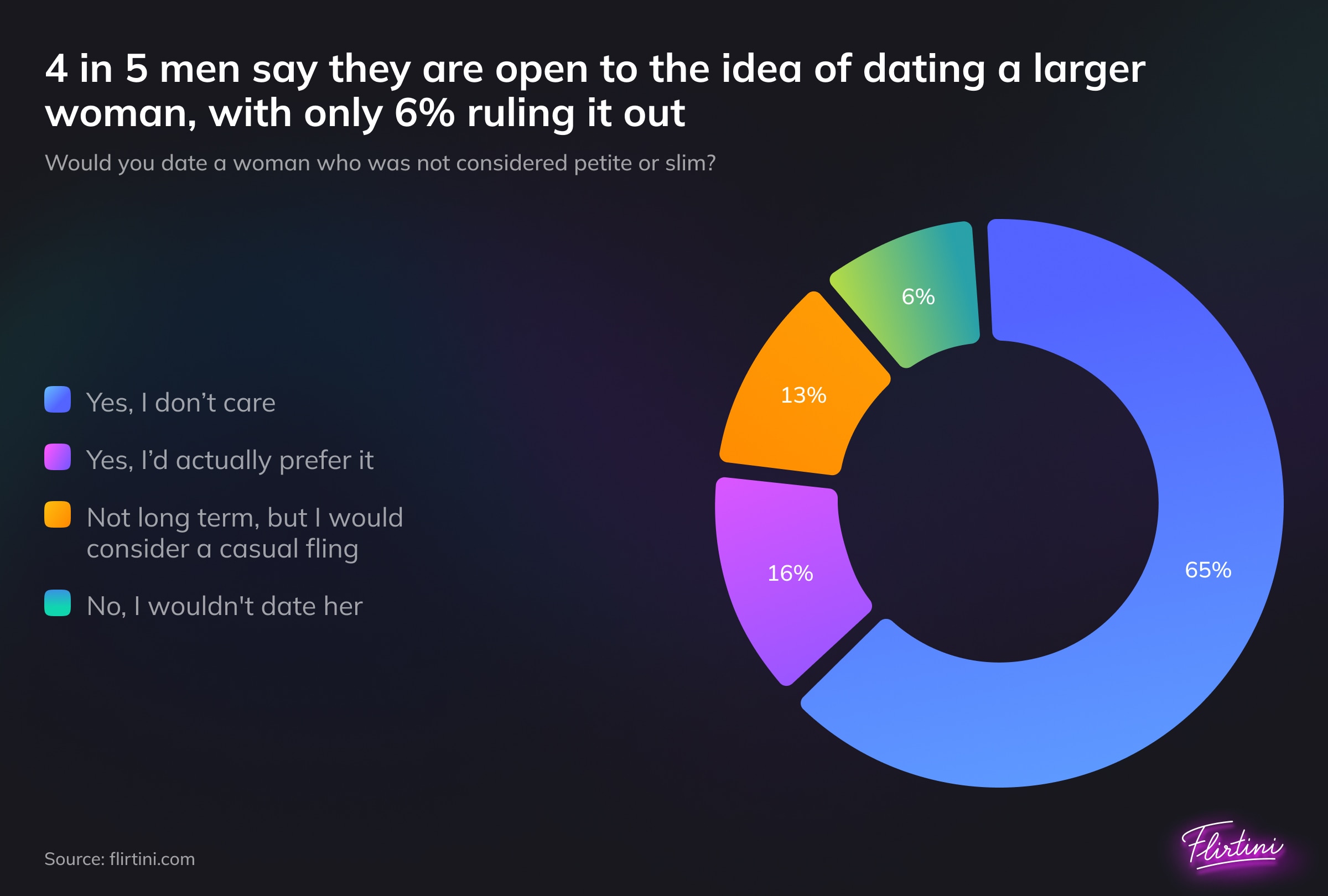
According to our survey, around 80% of men say they would be willing to date a woman who wasn’t considered ‘petite’, with around 1 in 4 of them saying they actually preferred a lady with more meat on the bones.
Only 6% ruled out dating a curvier woman altogether, with a further 13% saying they would be open to a casual fling but would not long term.
But size isn’t the only stereotype that women have to contend with. By some traditional rules – and ones we aren’t defending – women are discouraged from making the first move sexually.
How would our men feel if a woman made the first sexual advance? Unsurprisingly it turns out that attitudes have progressed since the Victorian era.
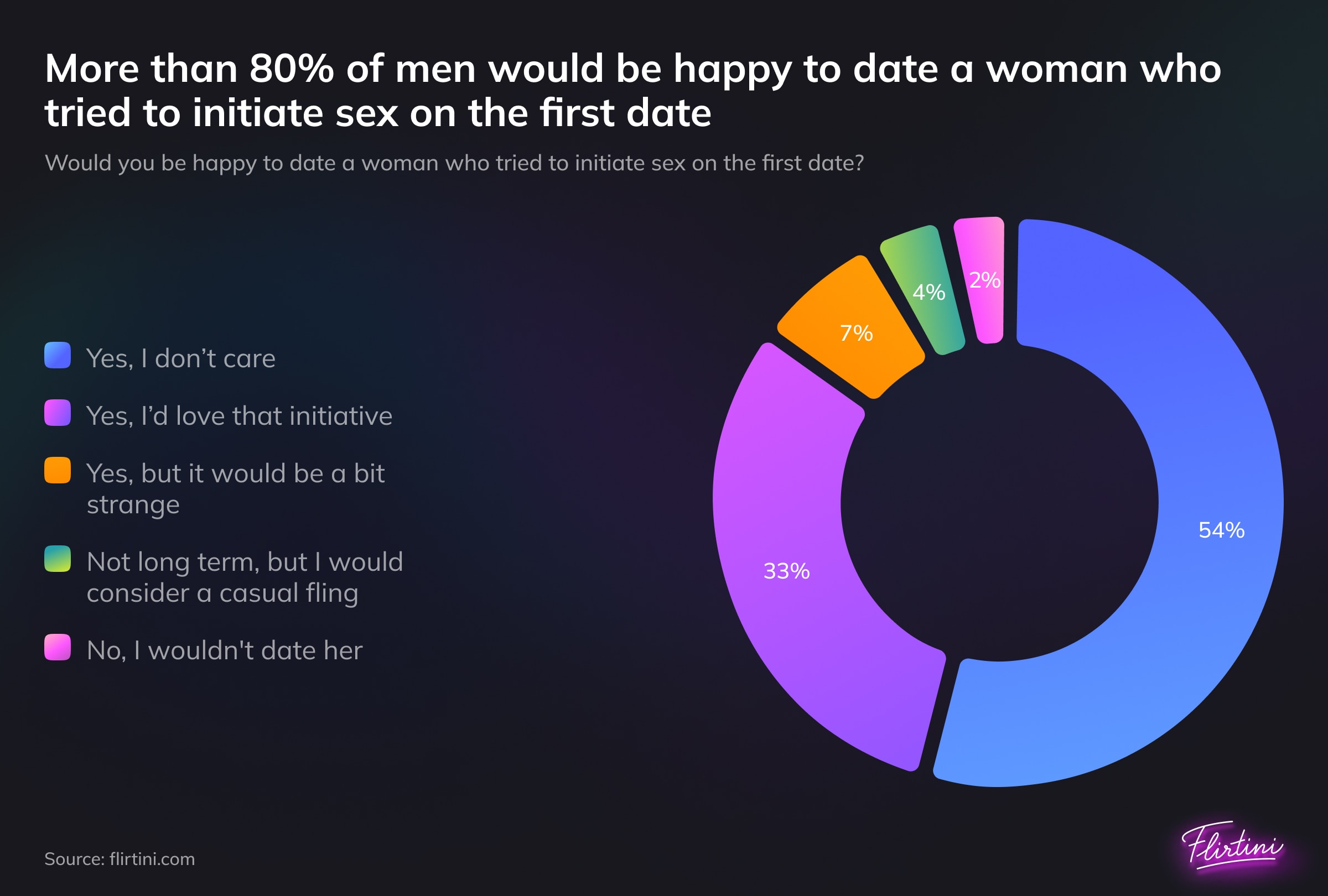
Only 13% of respondents had reservations about women making the first move, with only a small minority of them saying that it would be a deal-breaker.
By contrast, 54% of men said it wouldn’t bother them at all, and 33% of men said they would welcome a lady taking the initiative.
Women’s work: do stereotypes still matter at home?
When it comes to running a home, no one would deny that women have had the raw deal – certainly historically. But what about today?
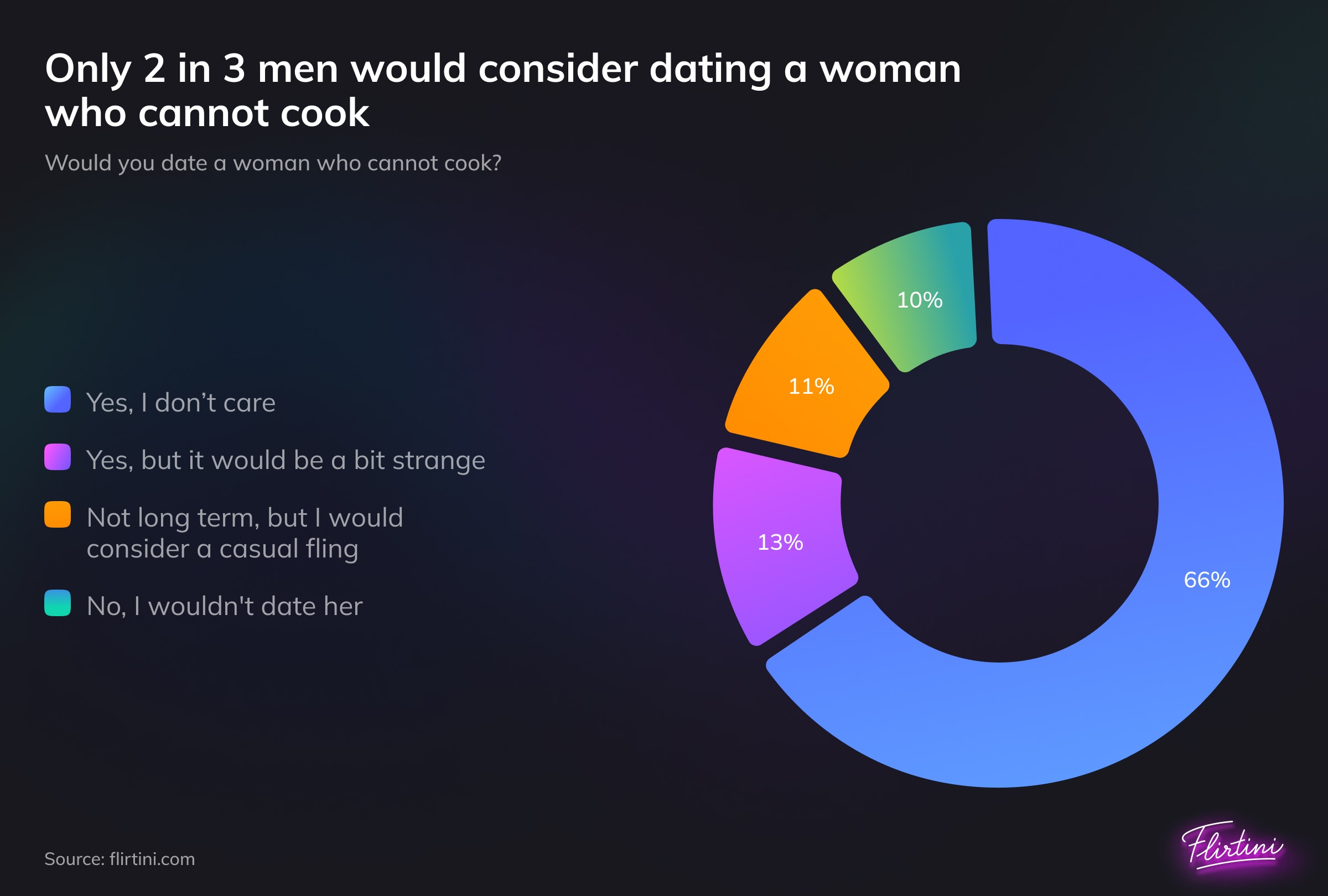
It turns out that today’s men are still judging women on their domestic abilities - at least to some extent. Asked if they would consider dating a lady who couldn’t cook, 21% of men said no.
While the majority of men – 66% – said it wouldn’t be an issue, that share was still noticeably lower than other questions. It suggests that this particular stereotype – that women should be the primary cook – is more persistent than others.
And what about stereotypes relating to money? Once upon a time, men were expected to be the main breadwinner, while women rarely worked at all. But do these attitudes still affect our modern society?
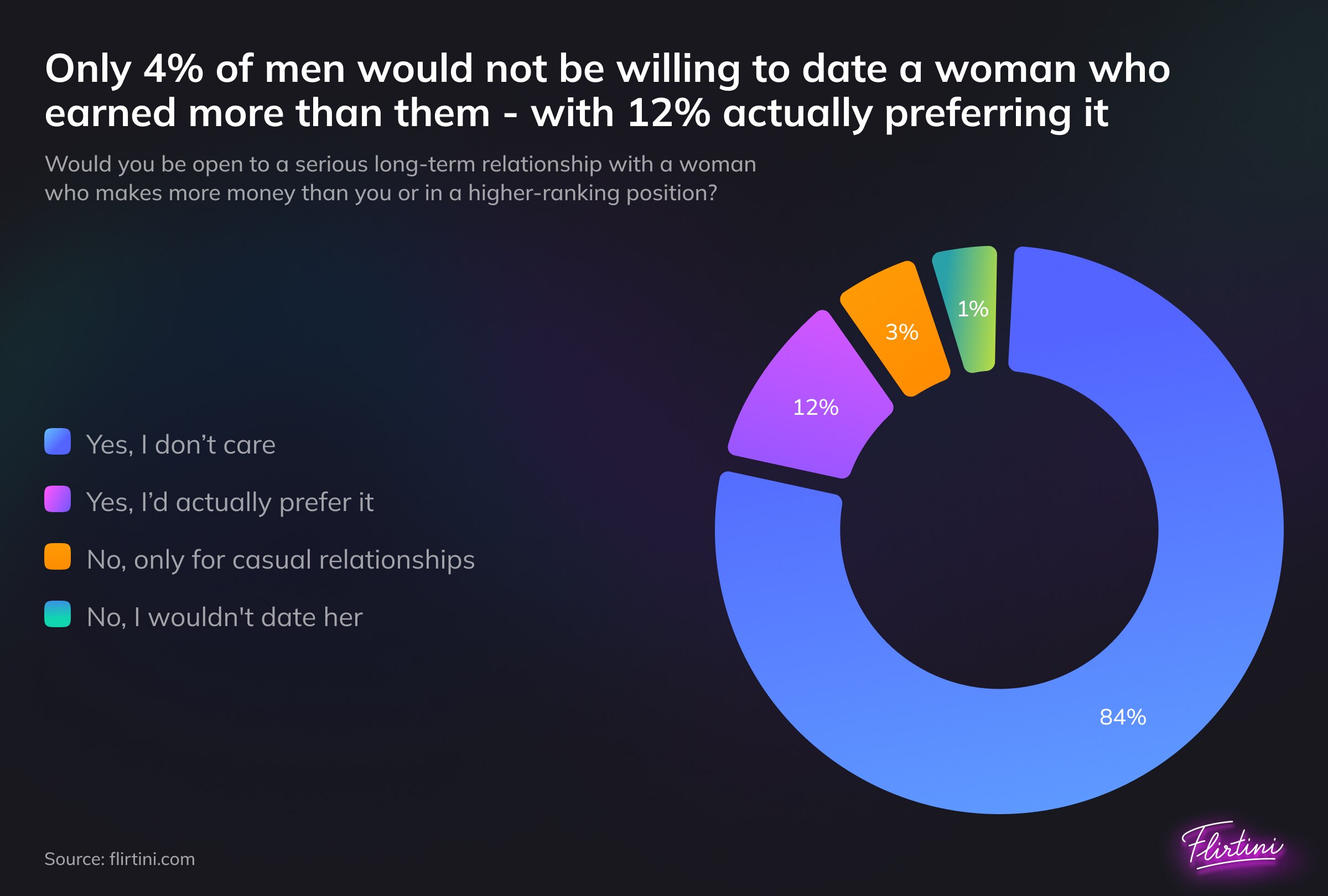
Only 4% of respondents said they would not want to date a woman who earned more than them. Interestingly 12% of men said they would actually prefer it (I mean, you can see the logic…) and 84% said they wouldn’t care.
Our men were similarly relaxed about women taking an egalitarian approach to finances, with only 6% reluctant to have serious long-term relationships with reluctant to have serious long-term relationships with a woman who insisted on paying her way on all occasions.
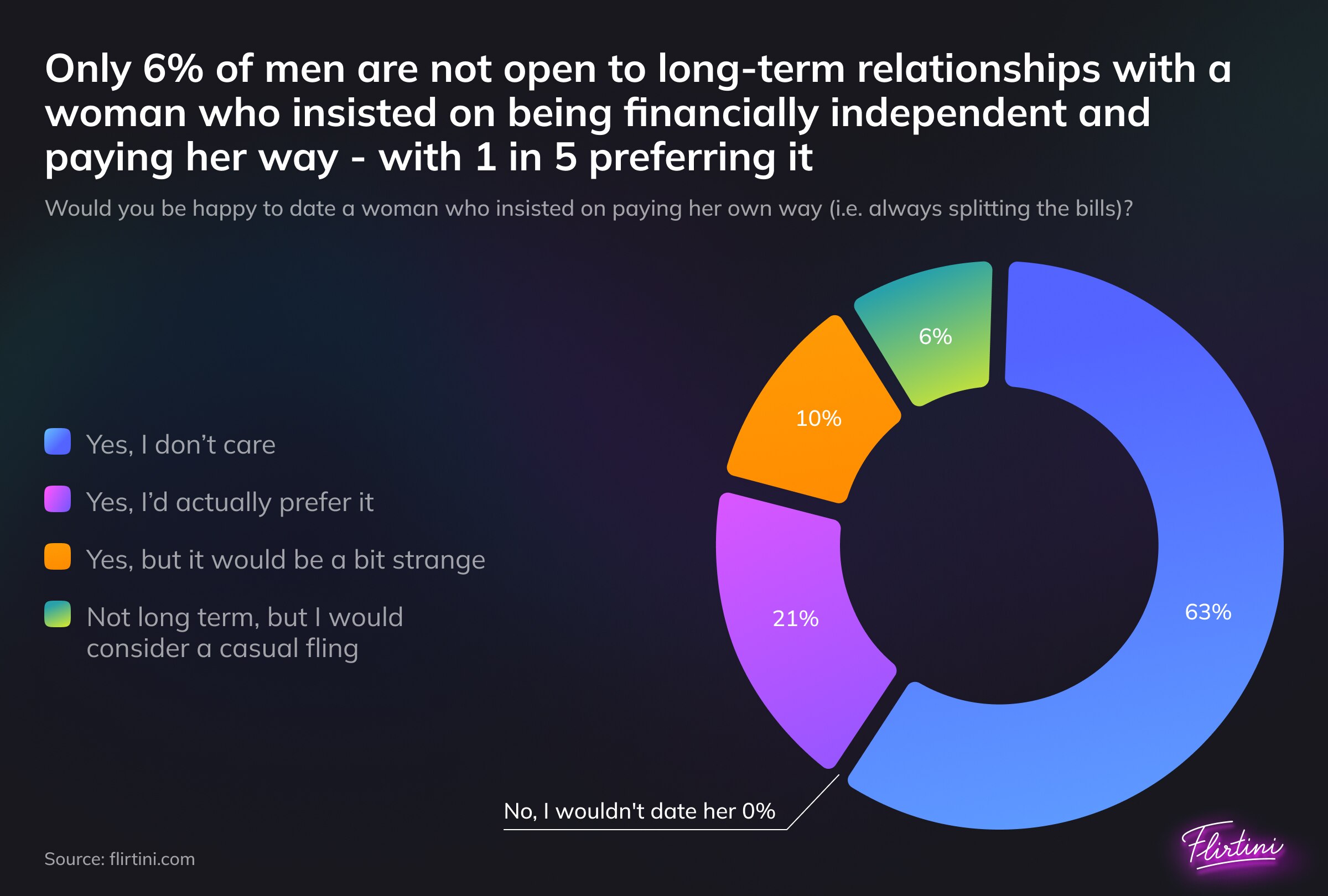
Again, the majority of men – 63% – were particularly comfortable with going 50/50 on finances, with 21% admitting that they actively preferred taking a more modern approach.

Family matters: do stereotypes endure when it comes to kids?
We all know the proverb about how a woman’s work is never done. After all, not only were women expected to take on the cooking and cleaning, but the childcare duties too.
In the modern world, things aren’t so clearcut. Women can focus on their pursuits, over starting a family. Some choose to stay child-free entirely.
Were our respondents on board with this change? It turns out our men were divided on this one.
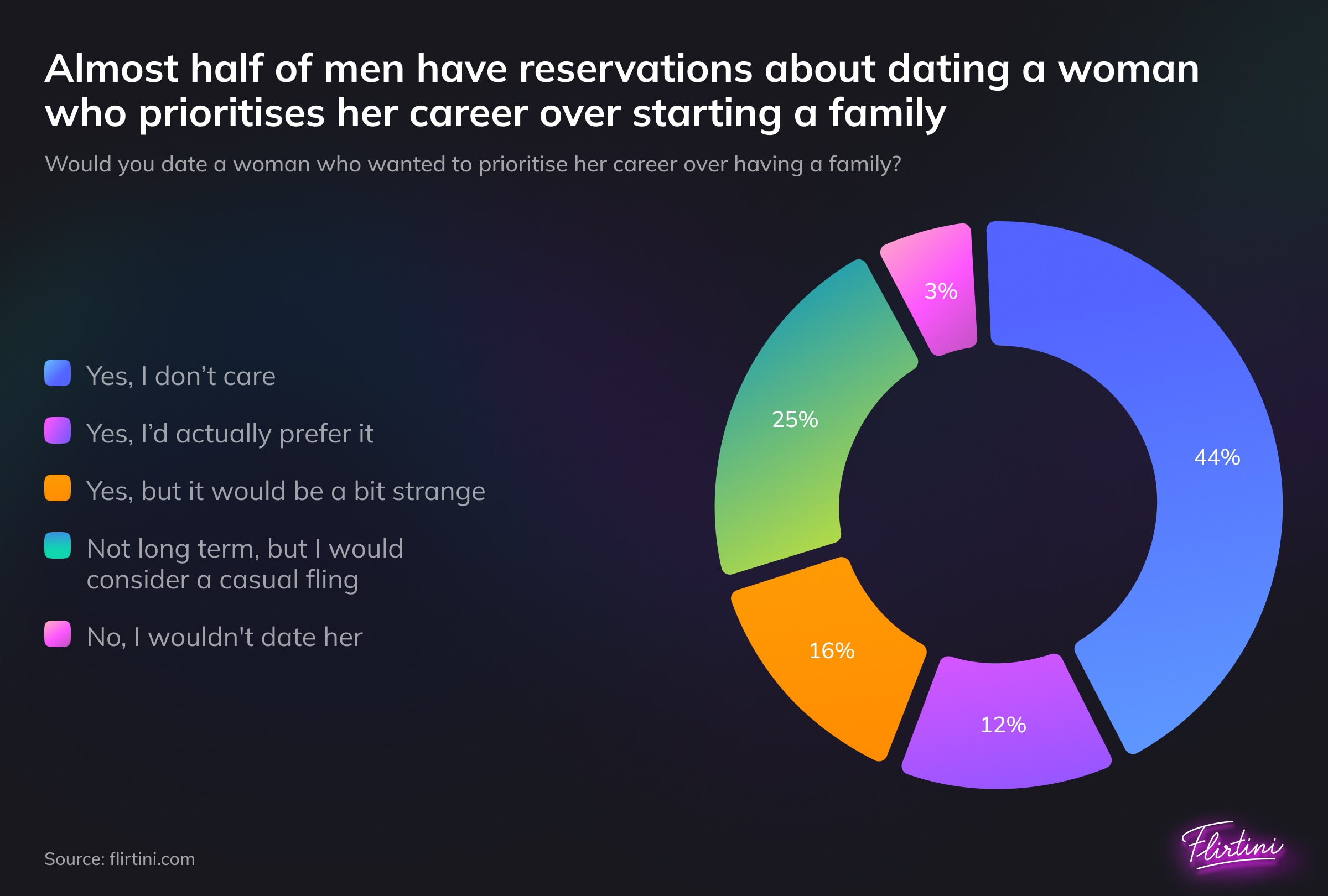
3% of respondents said they would rule out dating a woman who wanted to prioritize her career over starting a family, while 25% said they would only be interested in short-term dating.
Still, 44% said they wouldn’t be fazed by such a situation, 12% said they would prefer it, and 16% said that, while it would be a bit strange, they’d be prepared to go along with it.
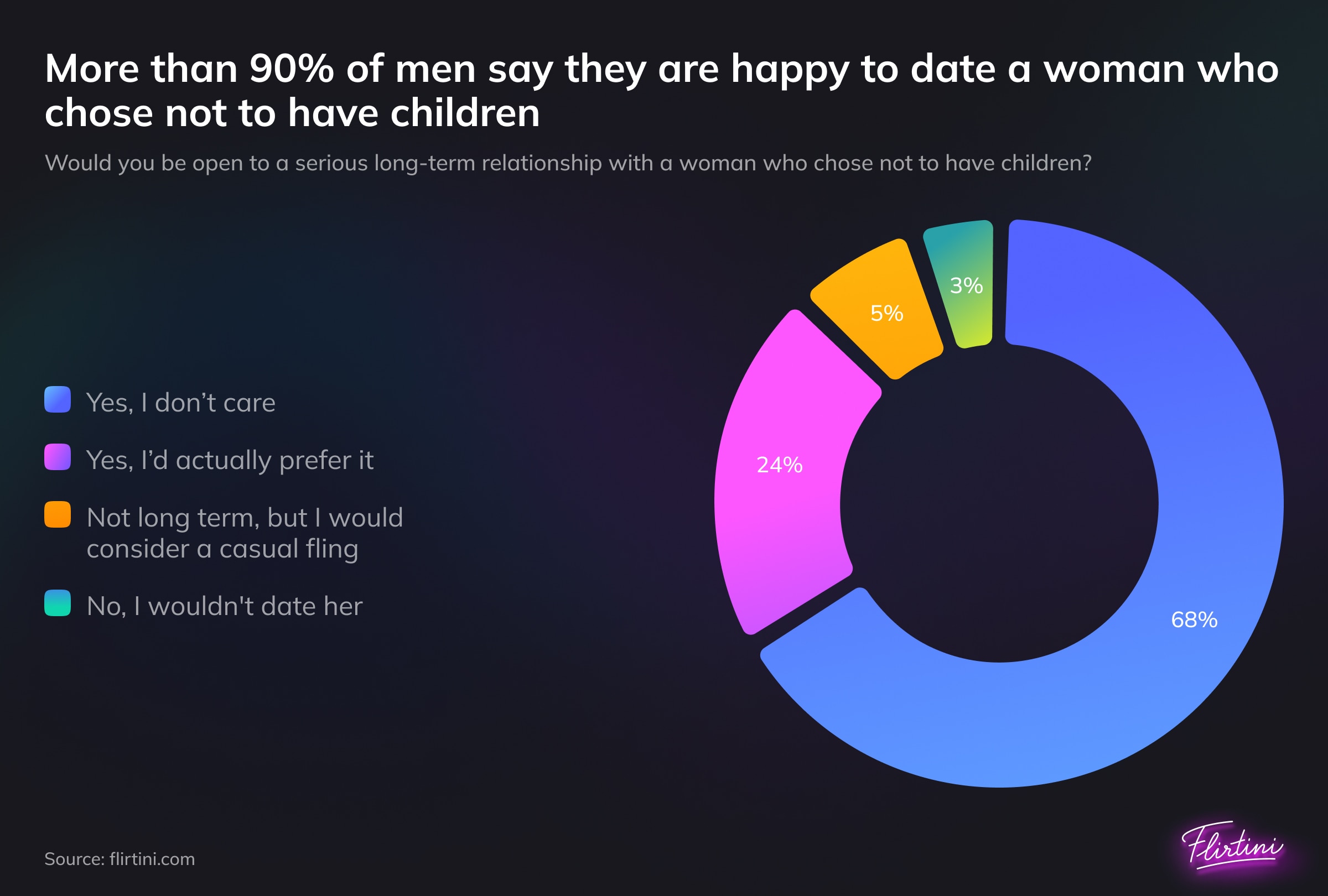
Men were also open-minded to the idea of dating a woman who didn't want children at all. Over 68% said they wouldn’t care, with 24% saying they would actually prefer that situation.
Indeed only 8% of men expressed reservations, suggesting that men are increasingly comfortable with the idea of child-free relationships in the long run.
A matter of manners: do women still need to be “ladylike”?
Elegant. Refined. Demure. Just some of the words that have historically been used to describe how women are expected to act when it comes to courting.
Being ladylike may have been vital to women’s dating prospects in the days of Jane Austen. But does it matter as much today? Can women engage in behaviors once seen as taboo – or will they be judged by potential dates?
Take smoking, for example. Once upon a time, the idea of a woman smoking was highly provocative. But have men gotten over the shock and distaste?
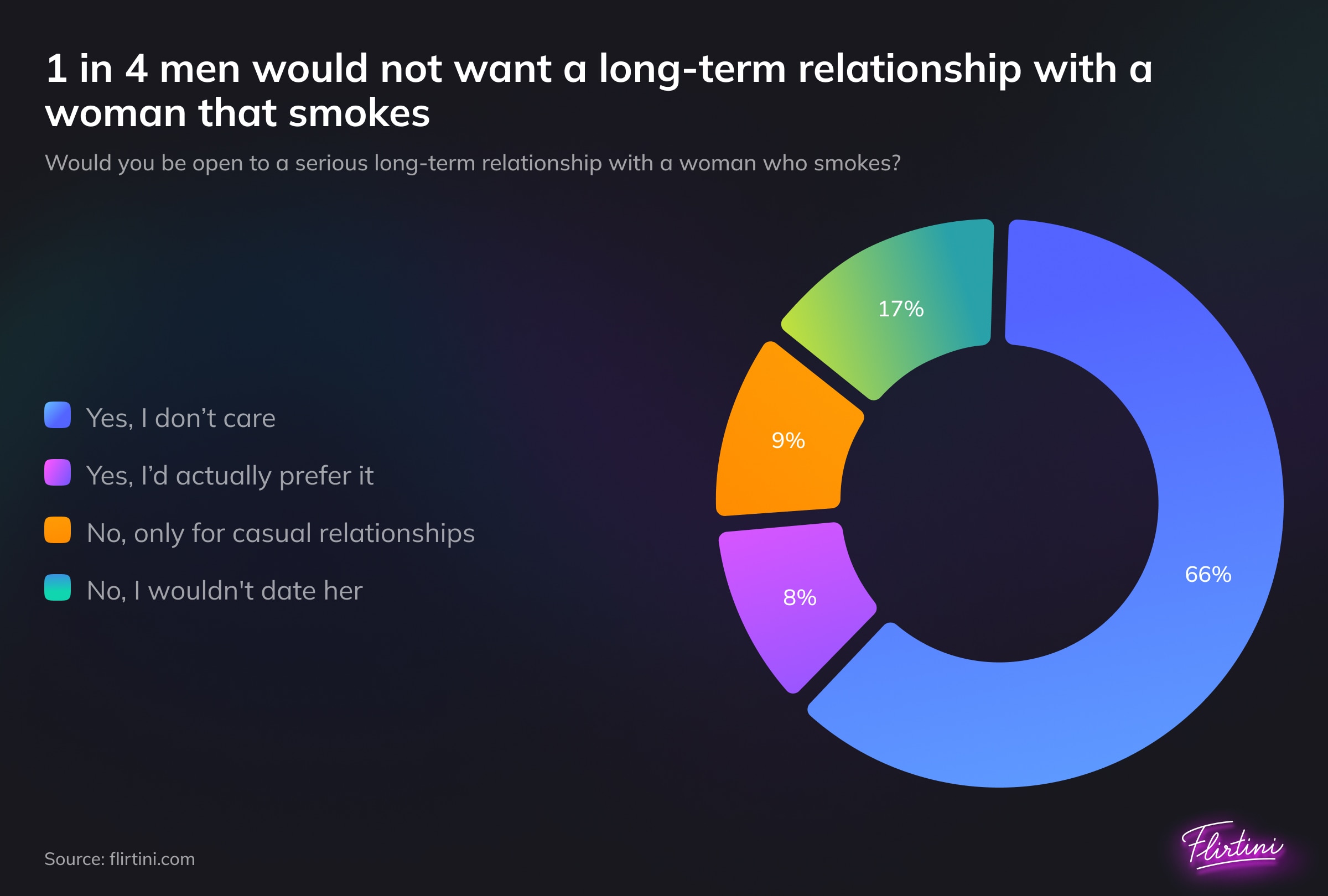
Not as much as you might think, says our survey. Overall, 26% of men said they would not want a long-term relationship with a woman who smokes.
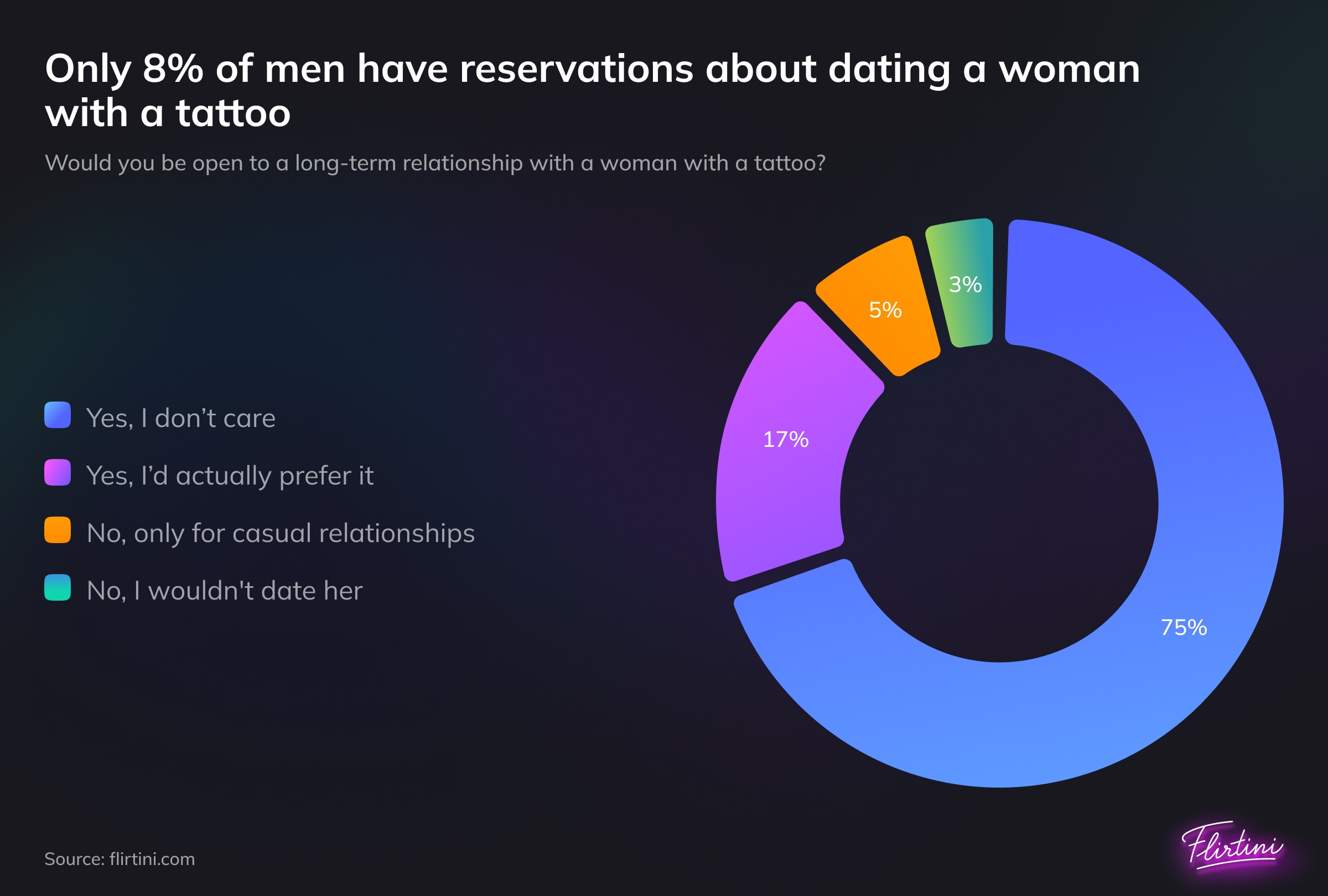
Some gendered taboos have endured even less. Only 8% of respondents had any reservations about dating a woman with a tattoo, for example.
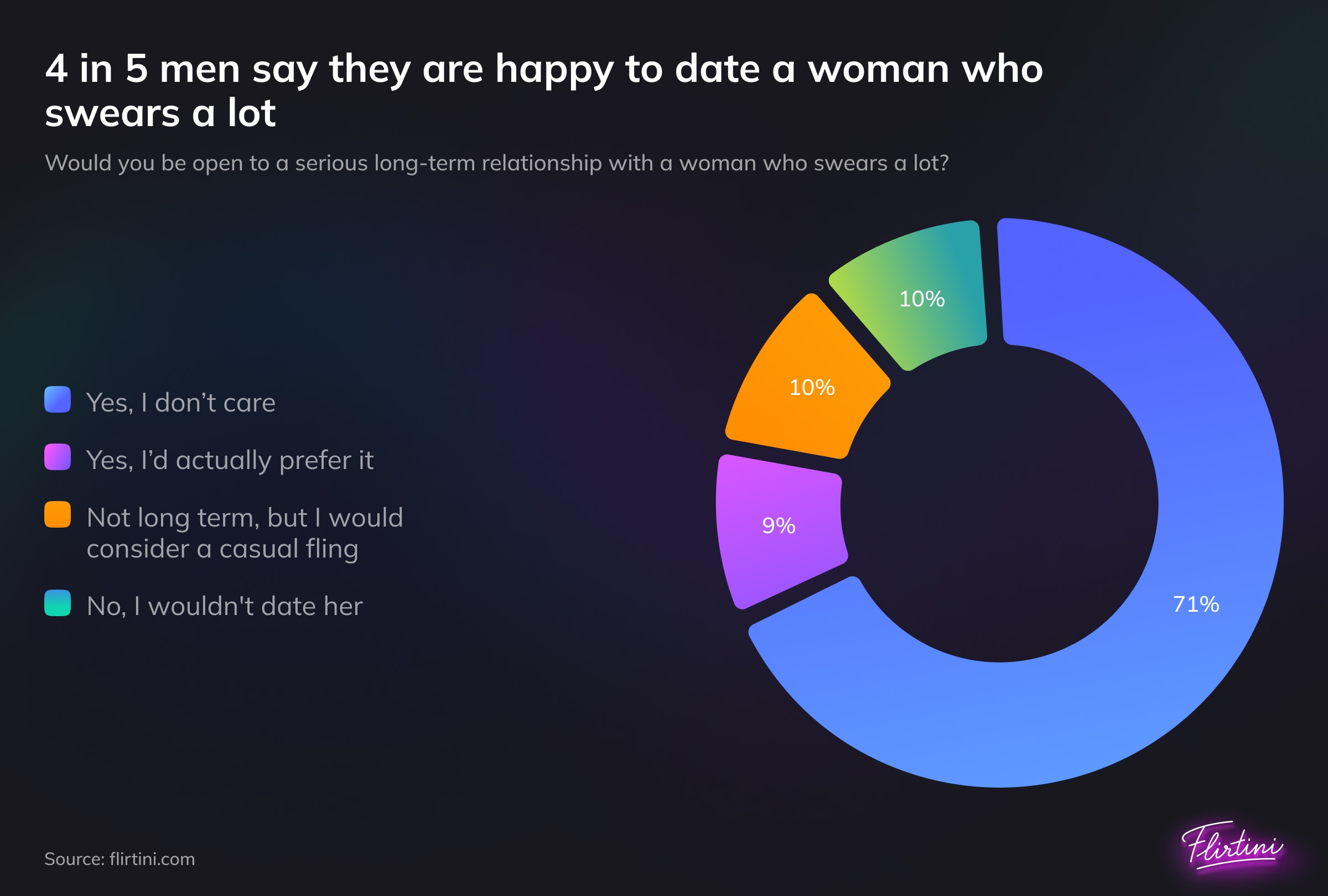
Similarly, just 20% of men said they would think twice about dating a woman who swears a lot in conversation.
So are gender stereotypes on their way out? Our data certainly suggests that men have become more relaxed about leaving such traditional expectations behind.
Of course, there is one big caveat: sometimes what men say they want and what they actually do can be two different things. But based on what they told us, the verdict is clear: the idea of the stereotypical “good girl” doesn’t matter so much.
Methodology: To create this study, researchers from Flirtini surveyed 2000 men from three different generations (Gen Z; Millennials; and Gen X) aged over 18 years old. The study includes participants of all ethnicities.



